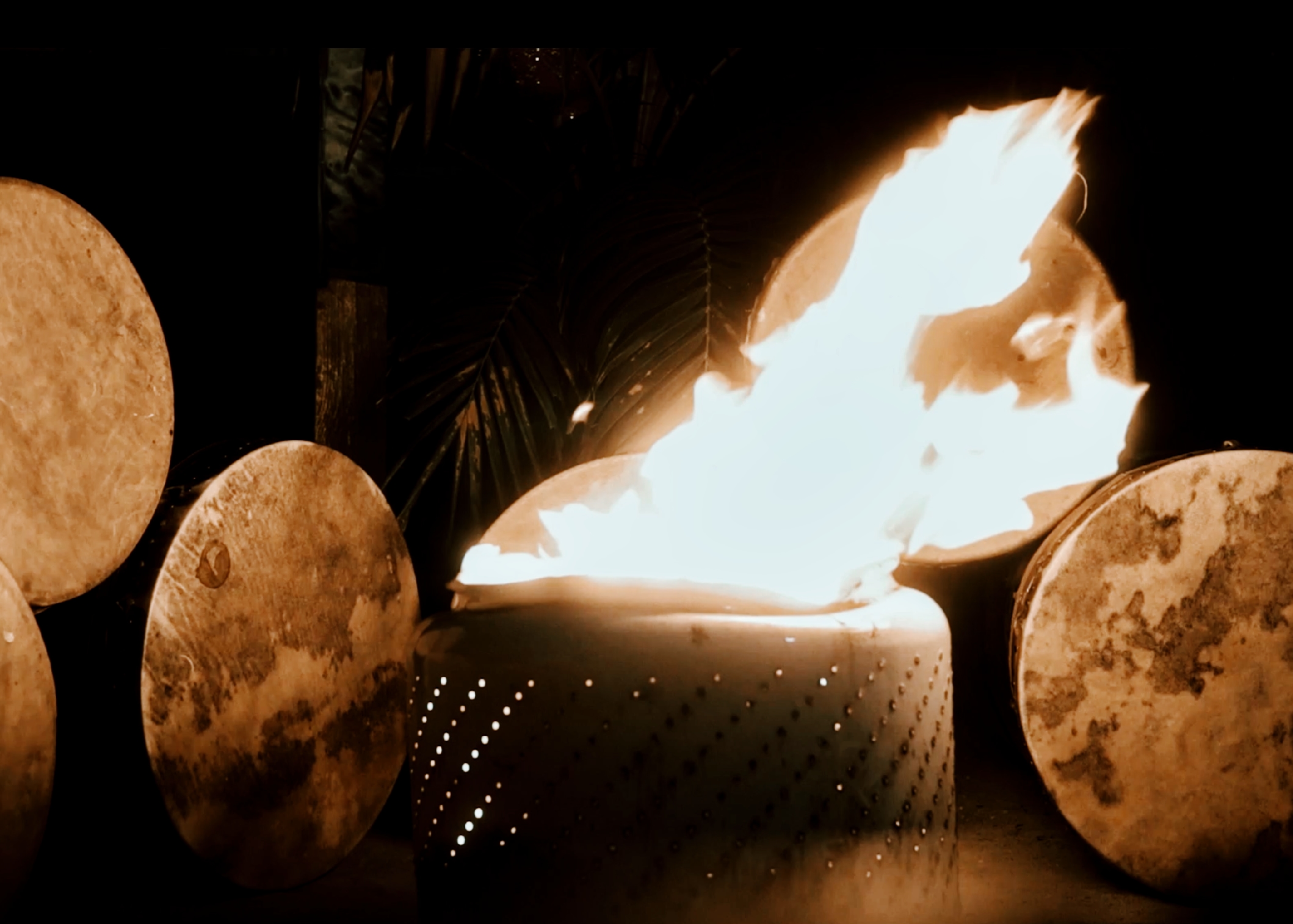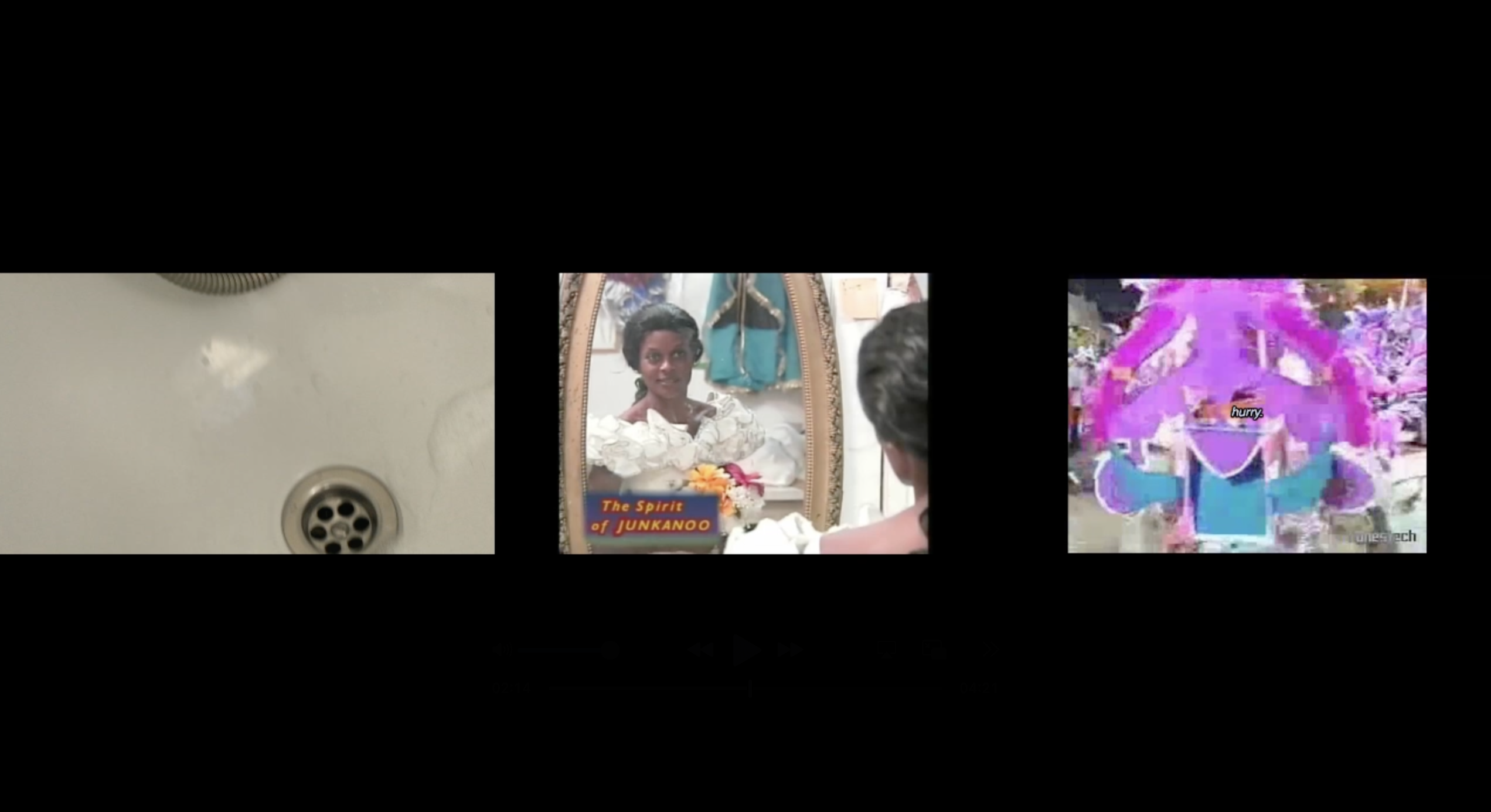
Tanicia Pratt, an interdisciplinary poet, writer, and artist who started in Nassau’s underground spoken word poetry scene, presents a new project, Blow the Whistle, which responds to the growing prevalence of sexual violence in The Bahamas.
Showing in the National Art Gallery of The Bahamas’ Project Space, the poetic film installation explores themes of sexuality, violence, and bodily autonomy. The work remixes Pratt’s original poetry with clips of Junkanoo, household cleaning, and the sound of whistles – a somewhat tongue-in-cheek response to Prime Minister Minnis’ 2020 proposal to provide “women and children with complimentary [rape] whistles” should they win the next general election.
In 2016, the National Task Force for Gender-Based Violence reported that The Bahamas had the highest incidences of rape per capita in the Caribbean. As a response to this report, along with controversial debates on solutions over the years, Blow the Whistle is a parade of whistles that haunt, alarm, and mobilise justice for women and children.
“I found the whistle to be very metaphoric in its sound and function,” explains Pratt, when asked about her thought process. She goes on: “Whistles come in many different sounds and containments. A human whistling can represent enjoyment. A kettle whistling on the stove can represent home. A mechanical whistle can be a call to action, or an alarm. In The Bahamas, natives often recognise the sound of whistles in relation to Junkanoo parades. Played alongside goatskin drums, horns, and cowbells, the Junkanoo whistle is symbolic for rebellion and freedom from slavery.”

Primarily inspired by Nevin Aladag’s Fanfare, exhibited at the Hayward Gallery in London, England, Blow the Whistle consists of three frames in which scenes of a woman cleaning, a woman yelling, and people rushing Junkanoo all come together to create a clash of sound. The sound itself is a warning—high-pitched and anxiety inducing. “With these visuals I question who is cleaning and what is being cleaned up,” says Pratt. “Cleaning is also seen as a domestic chore expected to be performed by married women, and the performance of cleaning speaks to silence, traditional values, and submissiveness.”
Her poems, “Junkanoo Mornin’”and “Clippings of a Teen Girl” are read in her voice. “Junkanoo Mornin’” is read like a monologue for getting ready for Junkanoo, while “Clippings of a Teen Girl” repurposes journalistic language to imagine future outcomes of a national whistle registry. Both poems can be read as a warning and a cry to bring to light The Bahamas’ increasing rape crimes, social inequalities, and the absurd responses to these horrors and injustices.
You can find Tanicia Pratt’s poetry in numerous publications such as Bad Form, PREE, Lungs Project, POUI, Soeurs, among others. She has performed on many international platforms, including Write About Now, Middle Ground Berlin, Marché de la Poésie, Ormsby Hall Kingston, and the National Art Gallery of The Bahamas. Her books have also been collected by the National Poetry Library of England. In 2022, she authored BLUE, a poetic narrative that delves into the emotional complexities of living and loving (in) The Bahamas. See Blow the Whistle at NAGB through May 2025.